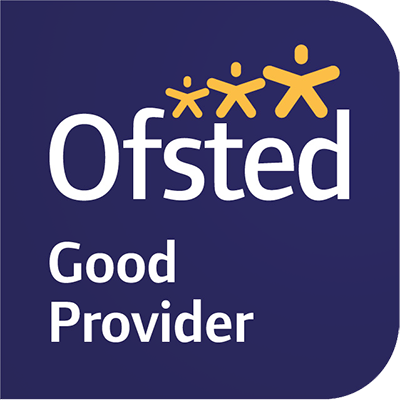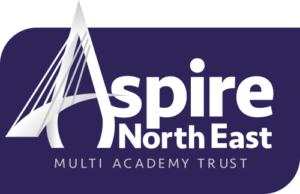Outdoor Learning Curriculum Overview
Knowledge Organisers
- Confidence
- Social awareness
- Environmental awareness
- Physical skills
- Personal qualities
- Key skills
- Health and fitness
- Broaden horizons
Key Stage 3 Curriculum
Our Key Stage 3 Curriculum:
Three year KS3 with 1 hour per week allocated to Outdoor Learning.
Download the full policy at the link above for a full break down of learning for each Term.
Academy Aim
Here at Sandhill View Academy, we aim to securely equip all of our students for life beyond school as successful, confident, responsible and respectful citizens. We believe that education provides the key to social mobility and our curriculum is designed to build strong foundations in the knowledge, understanding and skills which lead to academic and personal success. We want our students to enjoy the challenges that learning offers. And ultimately, we want students to ‘Know More, Do More and Go Further’
Our aims are underpinned by a culture of high aspirations. Through developing positive relationships, we work towards every individual having a strong belief in their own abilities so that they work hard, build resilience and achieve their very best.
Intent
The curriculum includes project-based learning, assemblies and extracurricular activities. We regularly review content to ensure we continue to meet our curriculum aims. The Outdoor Learning curriculum is planned to allow students to become immersed in the world they live in and allow them to have personal growth in the skills that are required to be a well-rounded citizen, whilst conducting a range of fieldwork linked to Geography. By completing a range of topics, students build skills that are transferable across all curriculum areas and help them put theory into practice. The Outdoor Learning curriculum will enhance pupils' self-confidence, motivation and physical skills through project-based learning. The Outdoor Learning curriculum is planned to enable all students to confidently develop knowledge and skills in the following areas:
The British values of democracy, the rule of law, individual liberty, and mutual respect of those with different faiths and beliefs are taught explicitly and reinforced in the way in which the school operates. We are also explicitly embedding transferable ‘Skills Builder’ skills such as problem solving, aiming high and teamwork to prepare our students for careers and life after school.
Sequence and Structure
Our curriculum is delivered throughout Key Stage 3 (years 7, 8 and 9). It is structured to build on prior knowledge and inform for future learning at KS3 in years 7, 8, and year 9. Each year builds on the skills and techniques gained in the previous year. The topics are taught via project-based learning in which students gain knowledge and skills by working for an extended period to investigate and respond to an authentic, engaging, and complex question, problem, or challenge.
Literacy:
We know that students who read well, achieve well. As such all-subject areas are committed to providing regular opportunities to read extensively. In Outdoor Learning we have incorporated literacy through using SMART readers, speeches and incorporating the word of the week. We have key vocabulary that are embedded throughout using PUSH and FRAYER models.
Skills Builder
We aim to explicitly embed transferable ‘Skills Builder’ skills such as problem solving, aiming high and teamwork to prepare our students for higher education and employability skills for the future. This year in Outdoor Learning we will focus on TEAMWORK including group decision making/recognising the value of others. PROBLEM SOLVING by exploring complex problems by analysing cause and effect and understanding through this through research. Furthermore, we want our students to AIM HIGH by setting goals, prioritising tasks and involving others.
How does our Curriculum cater for students with SEND?
Sandhill View is an inclusive academy where every child is valued and respected. We are committed to the inclusion, progress and independence of all our students, including those with SEN. We work to support our students to make progress in their learning, their emotional and social development and their independence. We actively work to support the learning and needs of all members of our community.
A child or young person has SEN if they have a learning difficulty or disability which calls for special educational provision to be made that is additional to or different from that made generally for other children or young people of the same age. (CoP 2015, p16)
Teachers are responsible for the progress of ALL students in their class and high-quality teaching is carefully planned; this is the first step in supporting students who may have SEND. All students are challenged to do their very best and all students at the Academy are expected to make at least good progress
Specific approaches which are used within the curriculum areas include:
- Pairing students to allow inclusion
- Resources are accessible yet challenging
- Where appropriate support from additional adults is planned to scaffold students learning
- Hands on practical tasks.
How does our curriculum cater for disadvantaged students and those from minority groups?
As a school serving an area with high levels of deprivation, we work tirelessly to raise the attainment for all students and to close any gaps that exist due to social contexts. The deliberate allocation of funding and resources has ensured that attainment gaps are closing in our drive to ensure that all pupils are equally successful when they leave the Academy. More specifically within the Outdoor Learning department, we;
- Work to identify barriers, interests and what might help each pupil make the next steps in learning by using lead practitioner research and actions to support.
- Provide students with all materials to reduce financial burden on families.
How do we make sure that our curriculum is implemented effectively?
- The Curriculum Lead is responsible for designing the Outdoor Learning curriculum and monitoring implementation.
- Monitoring is validated by senior leaders.
- Staff have regular access to professional development/training to ensure that curriculum requirements are met and subject knowledge developed.
- Curriculum resources are selected carefully and reviewed regularly.
How do we make sure our curriculum is having the desired impact?
- Session observations
- Learning walks for KS3 based upon departmental priorities
- Regular feedback from teaching staff during department meetings
- Regular feedback from Middle Leaders during curriculum meetings
- Pupil Surveys
- Parental feedback




